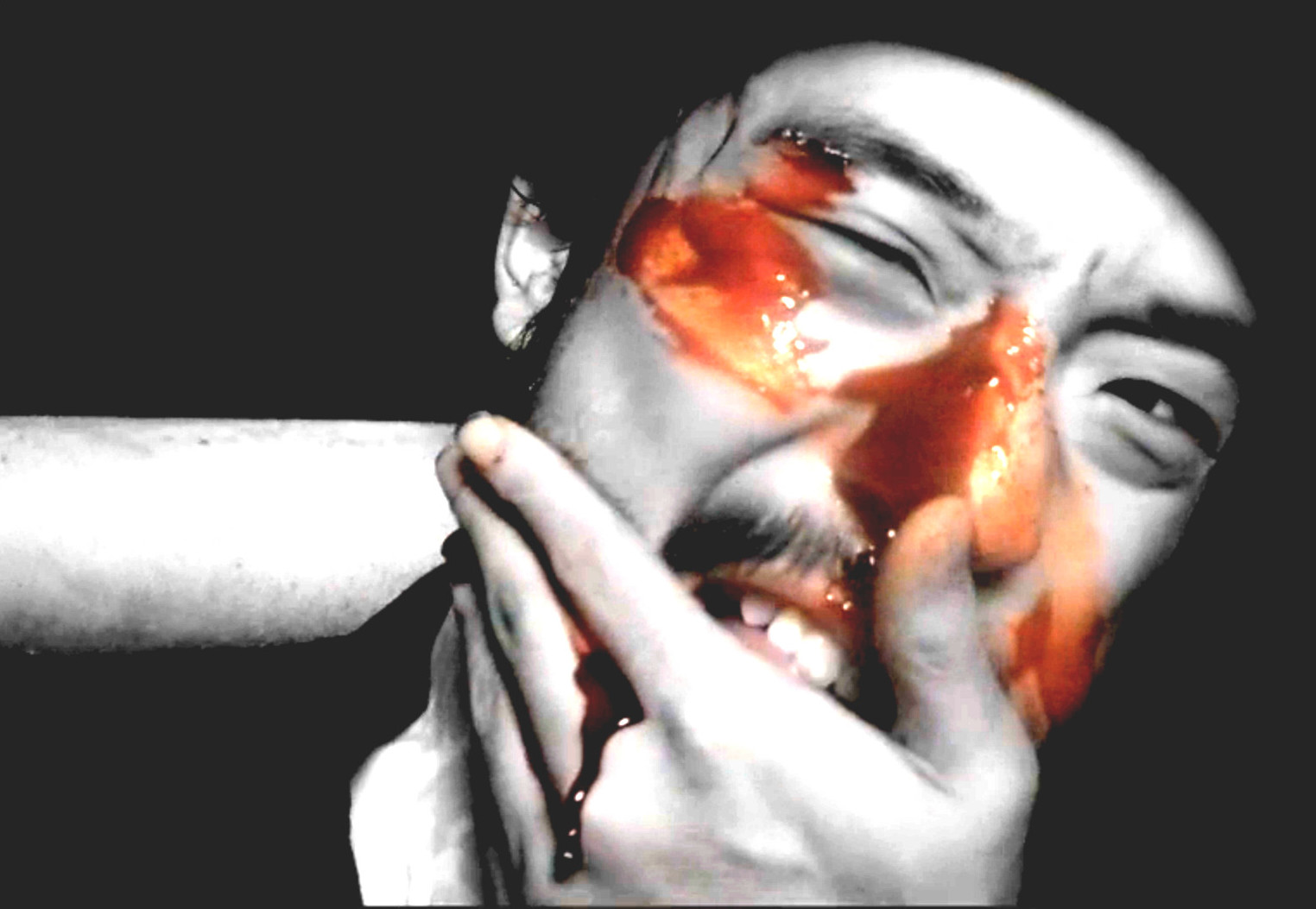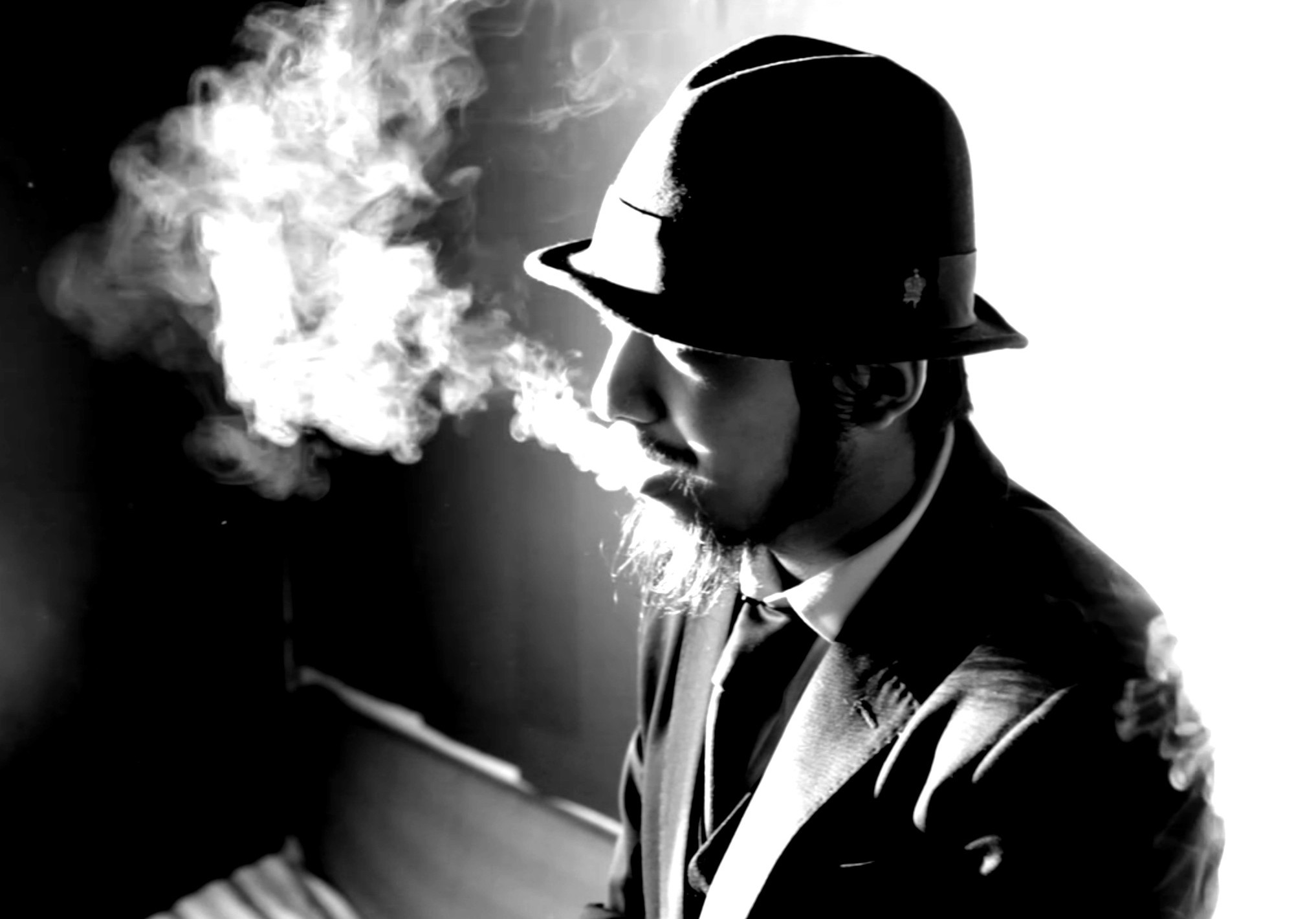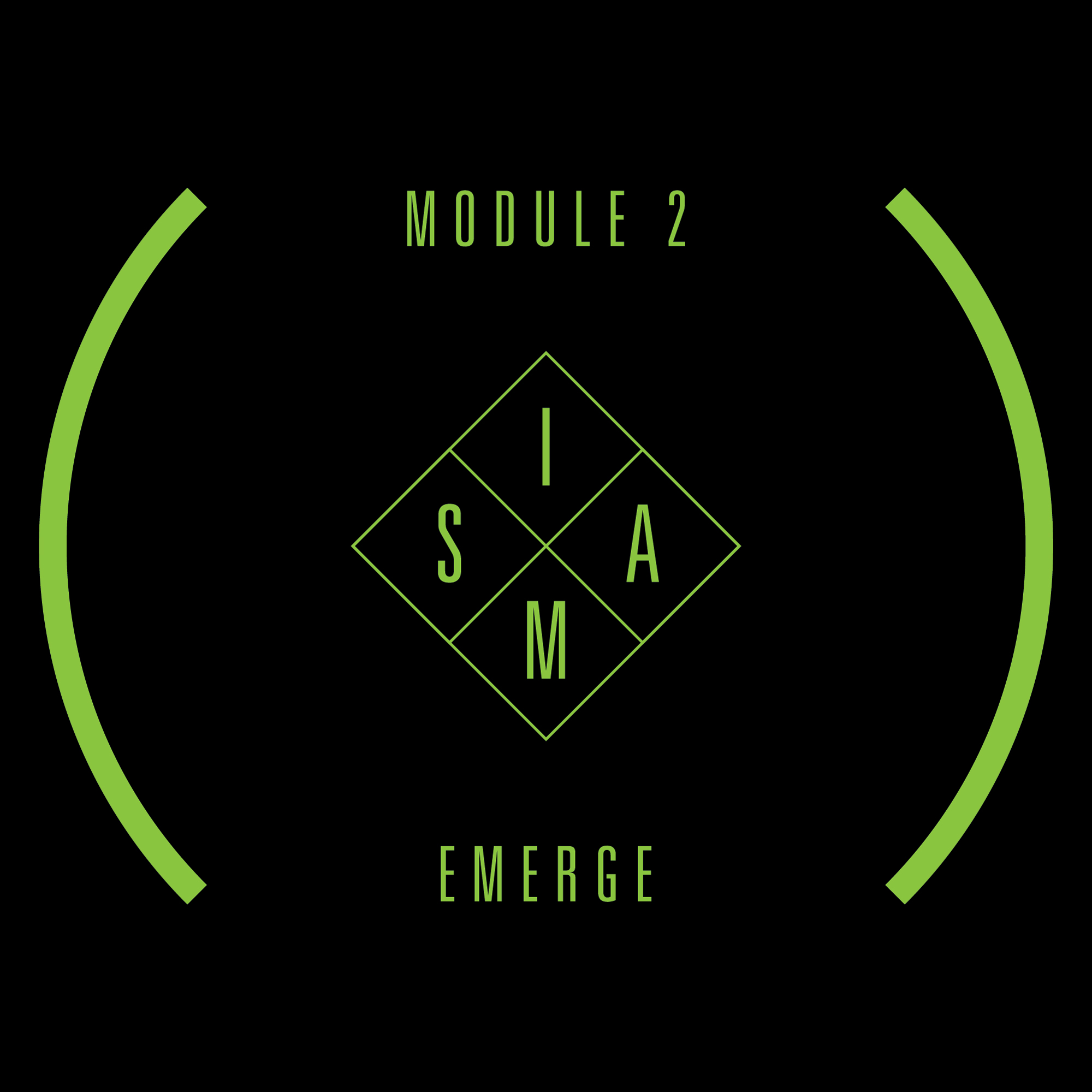Dirty Beaches @ D-22 (Review)
By Maya, 2011年 2月 3日
Not in China? Watch on YouTube
It’s simple, in many ways, to describe Dirty Beaches’ recorded sound with a familiar roster of adjectives: ghostly, cinematic, evocative, nostalgic, American. Dirty Beaches, who is the Canadian artist Alex Zhang Hungtai of the leather jacket saunter, endless loops and vintage pill-style microphone, evokes classic sounds and sentiments of a particular mythology: The Ronettes, Johnny Cash, vagabond noises. So, how exactly does a champion of mid-century American legend fit into the Beijing rock scene? Do dusty highways and crooning desire require translation?
Well, yes and no. While the stages of Beijing don’t boast much mimesis in the way of the rockabilly melodrama, Dirty Beaches’ homage to the maudlin panoramas of American disquiet doesn’t feel entirely out of place in Beijing’s rock scene. Maybe erstwhile New York, Manchester, and Tokyo are more the speed in Beijing in terms of sights and sounds of influence, but the notion of an artistic present informed by a romanticized past is no news to Beijing rockers. All artists stand in the shadows of giants, it may only be that Dirty Beaches’ forefathers dreamed in a time and place slightly less engrained in the local consciousness.

Still, despite any natural familiarity with Dirty Beaches’ sound, the fact remains that D-22 is a small club and, while local bands have learned to tailor their shows to the narrow space, it’s often the case that the venue doesn’t naturally suit out-of-town performers. Dirty Beaches, who performed on Saturday January 22nd at Rose Mansion night, proffers a style alternately epic and minute in scale, of interchanged moments of intimacy and alienation wavering on D-22’s too-brightly-lit stage. Rare was a moment when Dirty Beaches, flexing his bilingual skills, failed to address the audience between songs. A few tender dedications — to Soviet Pop’s Li Qing and Li Weisi, the dreamy “True Blue”; in a more sobering moment, a Johnny Cash cover to honor Trish Keenan (the lead singer of Broadcast who recently passed away) — drew the audience in close, connected.
Through the unsteady ebb and flow of performance, even doo-wop riffs and ballads don’t sell out the real darkness, the listless, ageless angst drummed up from another time and place, at the heart of Dirty Beaches. In fact, somewhere around an encore of “Lord Knows Best”, an elegiac ballad that skirts both syrupy devotion and rageful abandon (“You know I don’t give a damn,” husks Dirty Beaches, “’bout anything/but you”) and a cover of the Stooges’ “No Fun” came his Rebel Without A Cause moment. Seemingly out of nowhere: an ungraceful leap into the small, clustered audience that flattened a few club regulars and an attempt to disassemble the controversial stage-front partitions with the help of a Qingdao bottle and a grunt of brute force. Sure, there’s little sock-hop purity to Dirty Beaches, but this moment of punkish rage brought a sharply literal — and maybe undeserved — edge to all the gritty romance and spotlight slow dances.

There’s an unsettling tension, not only between Dirty Beaches’ intimate conference with the audience and his sudden withdrawals into the theatrical (combing his hair, playing to the back of the stage, brooding) but the way his music reaches out, pulls back, hovers in a remote and foreign place before attacking the heart of the matter. The affect doesn’t remain on stage, but travels at least as far as the back corner of the club where chit-chat and Rose Mansion cassette tapes are available to all comers. “What’s your name, sweetheart? I’m Alex.” Well, gee, just call me Natalie Wood.
It’s a contradiction of many terms and his upcoming North American tour with Dum Dum Girls is sure to bring Dirty Beaches back onto the highways from whence he came, but for now this performance seems to exist in some place where affect meets theatricality, where homage meets originality, and where a far-gone time and place can become heart-achingly personal.






